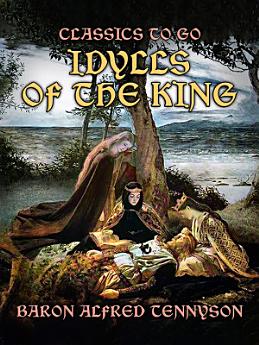Idylls of the King
Sep 2023 · Otbebookpublishing
Ebook
221
Pages
family_home
Eligible
info
reportRatings and reviews aren’t verified Learn More
About this ebook
Idylls of the King, published between 1859 and 1885, is a cycle of twelve narrative poems by the English poet Alfred, Lord Tennyson (1809–1892; Poet Laureate from 1850) which retells the legend of King Arthur, his knights, his love for Guinevere and her tragic betrayal of him, and the rise and fall of Arthur's kingdom.
About the author
Baron Alfred Tennyson Tennyson, born on August 6, 1809, in Somersby, Lincolnshire, emerged as one of the most celebrated poets of the Victorian era. His early life was marked by personal turmoil, including his father's struggles with mental illness and addiction, which profoundly influenced his melancholic and introspective poetry.Tennyson's ascent to literary fame began with the publication of "Poems, Chiefly Lyrical" in 1830, showcasing his mastery of language and deep emotional resonance. His works often grappled with themes of loss, mortality, and the quest for meaning in an increasingly industrialized world, resonating deeply with readers of his time and beyond.Appointed Poet Laureate in 1850, Tennyson's influence extended beyond poetry into the cultural and political spheres. His works were celebrated for their musicality and vivid imagery, earning him the admiration of contemporaries like Queen Victoria and Charles Dickens. Tennyson's poetry also reflected the scientific and philosophical debates of his era, engaging with ideas from figures like Charles Darwin and Alfred Russel Wallace.Despite his acclaim, Tennyson was not without controversy. His conservative views on social issues, including his resistance to women's suffrage and his idealization of the British Empire, sparked debate among progressive thinkers. Nonetheless, his exploration of human emotion and his innovative use of meter and form left an indelible mark on English literature.Tennyson's legacy endures, influencing modern poets and writers who continue to draw inspiration from his ability to capture the complexities of the human experience. His life and work remain a testament to the enduring power of poetry to reflect and shape the cultural currents of its time.
Rate this ebook
Tell us what you think.
Reading information
Smartphones and tablets
Install the Google Play Books app for Android and iPad/iPhone. It syncs automatically with your account and allows you to read online or offline wherever you are.
Laptops and computers
You can listen to audiobooks purchased on Google Play using your computer's web browser.
eReaders and other devices
To read on e-ink devices like Kobo eReaders, you'll need to download a file and transfer it to your device. Follow the detailed Help Center instructions to transfer the files to supported eReaders.






